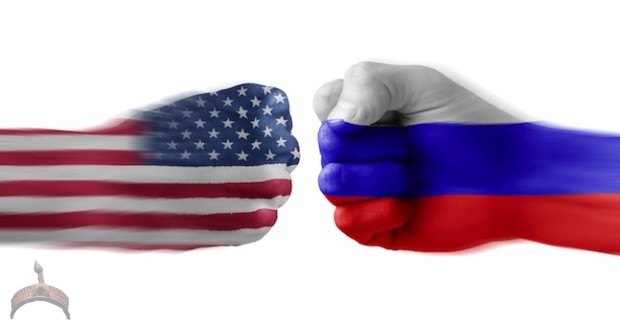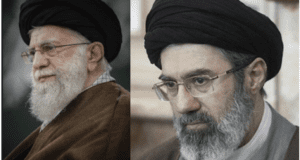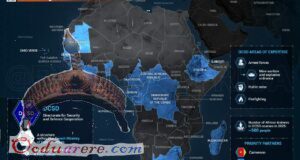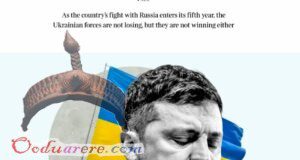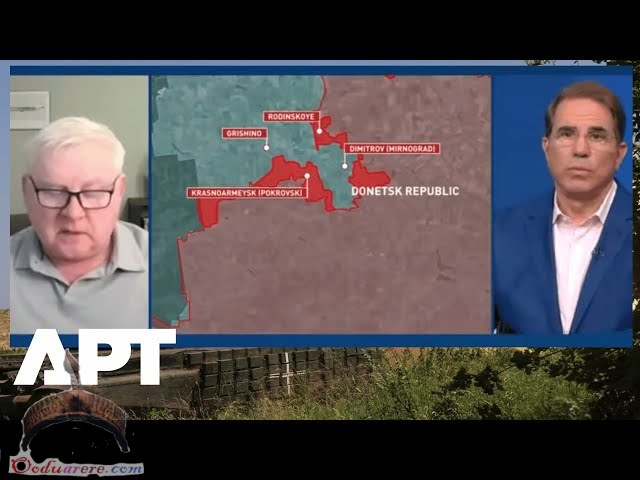by Amir Nour (1)
« In the emerging world of ethnic conflict and civilizational clash, Western belief in the universalityof Western culture suffers three problems: it is false; it is immoral; and it is dangerous »
Samuel Phillips Huntington
« The Clash of Civilizations and the Remaking of World Order »
Dear friend, I have just read the great question you have asked me about the world’s future according to the American Neo-conservative’s vision. This question came quite naturally to your mind when reading the interview (2) given by one of the most impassioned advocates of this school of thought – Thomas Barnett – author of the controversial book “The Pentagon’s New map: War and Peace in the twenty-first century”.
Assuredly, we’re dealing here with a major issue whose understanding is a sine qua non condition for deciphering both the contingencies and the dominant trends characterizing the evolution of international relations, particularly since the end of the Cold War.
Indeed, the turmoil and convulsions the world is experiencing since the turn of the third millennium, more particularly in the region that should be of a paramount interest to you – i.e. the Arab-Muslim world – are one of the most significant manifestations of the process of multidimensional change underway. Most probably, they are harbingers of the “coming world”- in the words of Malek Bennabi- one radically different from that which we have known since the end of the Second World War to the fall of the Berlin Wall and the subsequent collapse of the Soviet empire in 1992.
The ensuing new international reality -the emergence of the United States of America as the sole global superpower- has also been a long shot since it has in turn faded as a result of both the financial and economic crisis that erupted in 2007-2008 and continues to this day, and the rise of new assertive international actors, including the BRICS members (Brazil, Russia, India, China and South Africa).
In all likelihood, this new “coming world” will be multipolar. This is a frightening prospect for the proponents of the perpetuation of the Old Order established by and for the West several centuries ago. And it is quite naturally therefore that the West, under the aegis of its American hegemon leader, is fiercely trying to hinder the realization of this inexorable prospect.
In the first chapter of my aforementioned book (3), I tried to analyze the reasons for this “fear”. At the core of those is undoubtedly the persistence of the imperial ideology that took over American policy after World War II: Neo-conservatism.
As explained in a related Wikipedia article, neoconservatism is a political movement born in the United States during the 1960s of the twentieth century, among conservative-leaning Democrats who became disenchanted with the party’s foreign policy and the “New Left” culture. The first writings of the neo-conservative current appeared in the Jewish monthly New York Monthly Review Magazine Commentary, published by the American Jewish Committee. And the first neo-conservative theorist to have adopted this word and is considered therefore as the founder of this ideology is Irving Kristol (who was militant Trotskyist in his early days!). He is the founder of the famous neo-conservative think tank: Project for the New American Century (PNAC).
Neo-conservatism peaked in influence during the Republican presidential administration of Ronald Reagan whose doctrine was guided by anticommunism and opposition to the global influence of the USSR. It reached its climax at the turn of the last century with the Bush Doctrine of exporting democracy, including by means of military force if necessary. The prominent neo-conservative newspapers are Commentary and the Weekly Standard. There are also neo-conservative think tanks on foreign policy, including American Enterprise Institute (AEI), the Heritage Foundation, JINSA (Jewish Institute for National Security Affairs) and, of course, the PNAC (4).
In foreign policy, the Neocons defend “the military power of Democratic States in international relations in order to establish a new international order”. In a PNAC manifesto published in 1996, they laid out their quintessential thought and principles as follows:
-Moral clarity and benevolent hegemony;
-Preventing the emergence of a rival power;
-End of “complacency” towards dictatorships;
-Refusal of the decline of the American power because it is the first democratic power of the world;
-Upgrading of the military tool to respond to aggression.
The Neo-conservatives say they want a new international order based on freedom, according to the designs that are not those of Kant and Wilson, to which they reproach the impotence, but which take their source in the writings of Moses Maimonides and Saint Augustine. They criticize the United Nations and international law in the name of morality. At major international conferences, they prefer smaller coalitions according to the “mission-defines-the-coalition” principle. They support Israel. Their creed is interventionism. Therefore, the United States “must be recognized as the flagship nation of human rights and export democracy and freedom all over the world if need be by force”.
Among the emblematic ideas of the Neo-conservatives, features prominently the theory of “creative chaos” -developed mainly by Michael Ledeen, a former correspondent in Rome of the New Republic. It is a project aiming to “establish a state of war and permanent instability in the Middle East that would enable the Americans and Israelis to preserve their geostrategic objectives in the region, even by re-redrawing it’s map”. Neo-conservatives do not consider the stability of the world a good to maintain but instead advocate the virtues of destabilisation.
Such was the opinion of Robert Kagan, co-founder with William Kristol of the PNAC. He was the originator of the letter of 26 January 1998 sent to Bill Clinton asking him to conduct another policy in Iraq, one with a view to toppling Saddam Hussein to preserve American interests in the Gulf. The same can be said about Robert Cooper, a British partisan of neoconservatism who advocated a doctrine of “imperialist liberalism” granting the “right” to “civilized countries” to use force against their “foreign ennemies” (5).
It was, however, President G. W. Bush who is notoriously known for having endorsed and put in practice these neo-conservative principles. He did so by invading Afghanistan in 2001 and Iraq in 2003 through an extreme instrumentalization of the unfortunate though “miraculous” events of 11 September 2001. In his 31 December 2005 State of the Union Address, he explained that there is no question of satisfying the “false comfort of isolationism”, which ends in “danger and decline”. America must “lead” the world. It’s a security imperative. “The alternative to American leadership is a much more dangerous and anxious world.” In his view, America must therefore continue to “act boldly in favour of freedom”. And as in 1945 “when she liberated the camps of death, she must accept the call of history to deliver the oppressed”, Half the world lives in a democracy, he said. “We do not forget the other half, in countries like Syria, Burma, Zimbabwe, North Korea and Iran because the demands of justice and the Peace of the world also require their freedom” (6).
To do so, the Security Council of a United Nations, although until then so decried by the neo-conservatives, becomes the privileged instrument for conducting hazardous military expeditions with chaotic consequences for some “recalcitrant” States and their peoples, particularly in the MENA region (7). George W. Bush named as his Ambassador to this important UN body John Bolton, a neo-conservative “hawk” who recounts his UN experience in a book with a very significant title (8).
Almost a decade later, and notwithstanding the debacles of unilateralism and military interventionism he has been preaching ceaselessly, Robert Kagan continues to exert a strong influence on the American establishment. In his book (9) published in 2012, he strived to refute the thesis of the “Decline of America”. This book is said to have become the bedside book of President Barack Obama, who stated in his State of the Union Address in January 2012: “America is back. Anyone who tells you otherwise, anyone who tells you that America is in decline or that our influence has waned doesn’t know what they’re talking about”.
This vision is shared by Steve Bannon, the mastermind of the new administration (before being excluded from it) of President Donald Trump. As explained in the excellent article by Pepe Escobar (10), Steve Bannon “a man who eats history and political theory essays for breakfast (…) a post-truth Machiavelli behind the most powerful of Princes”, sees our current geopolitical juncture as “the ultimate battle between Good and Evil (no, Nietzsche’s verdict, for him, does not apply) ‘Good’ in our case is Christian civilization and its history of two millennia – with a possible place of honor for the Enlightenment and the Industrial Revolution. Its opposite, ‘evil’ is conveyed by a whole series of ‘existential threats’ – from the post-modern, technocratic/secular elites (the inner enemy) to Islam (the enemy in general)”.
For more insight into the roots of this neo-conservative ideology and its impact on the policy that characterizes the United States today, I recommend reading the analysis written by Paul Fitzgerald and Elizabeth Gould (11). Armed with a razor-sharp writing style and remarkably documented references, they dissect the history of the Neocon take over of the United States, through a four-step-process presented as follows:
– American Imperialism Leads the World into Dante’s Vision of Hell
– How Neocons Push for War by Cooking the Books
– How the CIA Created a Fake Western Reality for ‘Unconventional Warfare’
– The Final Stage of the Machiavellian Elites’ Takeover of America
The Neocons, the Arab World and Israel
Dear friend, after outlining this long but indispensable historic and geostrategic overview, I come to the other major question underlying the issue you raised: Why is the Arab-Muslim world the main victim of this American neo-conservative ideology, one that is supposedly the bedrock of the New World Order and the ultimate culmination of a long process of a history coming to an end – according to another neo-conservative theorist: Francis Fukuyama? We now know that History did not end; on the contrary, it is witnessing an unprecedented acceleration, and the American Empire, far from bringing peace and prosperity to the world, has led all mankind on the road to the great disorder in the world and destructive chaos in the Arab-Muslim world, especially through the ill-named “Arab Springs”.
Aided by a formidable “media compressor roller” in its enterprise of global domination on behalf of a so-called messianic “manifest destiny”, the American empire undertook to redesign the world map in order to be able to establish, in the long term, a kind of « World State » or a « World Government ». This presupposes the destruction of nations by dissolving them into regions and continental poles. This is probably what Herbert Marshall McLuhan, the Canadian sociologist and Vatican adviser – notably known for coining the expression « the medium is the message » – had in mind when he wrote in 1968 “War and Peace in the Global village” (12) his revolutionary book in which he depicted a planet made ever smaller by new technologies, and used the concept of “glocal”, a mixture of global and local, foreshadowing the fundamental architecture of the New World Order.
As is well explained in an article (13) published in 2012, after the fall of communism, the epicenter of this policy was set in the Middle East “where not only the great reserves of hydrocarbons are located, but also the State of Israel, the real mother house of Globalism, which has been impeding all attempts of peace in this region of the world since its creation”. The map of this part of the planet has long been redesigned within Judeo-American think tanks as well as by military commands whose ultimate goals are the fragmentation of nations on ethnic and religious bases (leaving Israel as the only regional superpower), but also by pushing Islam to operate its “Vatican II” so as to be integrated tomorrow into the vast global market in gestation. Because Europe « is being in Dormition, whether we like it or not, Islam is the only bulwark against the total stranglehold of the Tel-Aviv and Washington traders on the world”. This desire to subdue Islam also aims to “create a single religion” (which should bring together all religious currents). This will only be achieved through the division of Muslims, Sunnis and Shiites. In view of this, one can easily understand why the sacred Islamic State (14) is also planned, including Mecca and Medina, to better control Islam and integrate it into a new world order, which is not possible today. Indeed this religion does not have an identified hierarchy (15).
In his excellent book “Black Terror White Soldiers: Islam, Fascism & the New Age”, David Livingstone states that because they are far too ignorant of the histories of the rest of the world, and being aware of only the accomplishments of Greece, Rome and Europe, Westerners have been made to believe that their societies represent the most superior examples of civilization. This idea, he continues, derives from the hidden influence of those who believe in and teach that history would attain its fulfillment when man would become God, and make his own laws. Livingstone concludes that this is the basis of the propaganda which has been used to foster a Clash of Civilizations, whereby the Islamic world is presented as stubbornly adhering to the anachronistic idea of “theocracy”. Where once the spread of Christianity and civilizing the world were used as pretexts for colonization, today a new White Man’s Burden makes use of human rights and democracy to justify imperial aggression. And because, after centuries of decline, the Islamic world is incapable of mobilizing a defense, the Western powers, as part of their age-old strategy of Divide and Conquer, have fostered the rise of Islamic fundamentalism, to both serve as agent-provocateurs and to malign the image of Islam.
Few weeks after the Amercian invasion of Iraq, Ari Shavit wrote a thought-provoking piece in the Israeli newspaper Haaretz under the significant title « White Man’s Burden » (16). He stated that the war against Iraq was based on an « ardent faith disseminated by a small group of 25 or 30 neo-conservatives, almost all of them Jewish, almost all of them intellectuals (a partial list: Richard Perle, Paul Wolfowitz, Douglas Feith, William Kristol, Elliot Abrams, Charles Krauthammer), people who are mutual friends and cultivate one another and are convinced that political ideas are a major driving force of history. They believe that the right political idea entails a fusion of morality and force, human rights and grit. The philosophical underpinnings of the Washington neo-conservatives are the writings of Machiavelli, Hobbes and Edmund Burke. They also admire Winston Churchill and the policy pursued by Ronald Reagan ».
Quoting William Kristol, he added that this war was also based on « the new American understanding that if the United States does not shape the world in its image, the world will shape the United States in its own image ». At a deeper level, according to Kristol, it is « a greater war, for the shaping of a new Middle East. It is a war that is intended to change the political culture of the entire region. Because what happened on September 11, 2001, Kristol says, is that the Americans looked around and saw that the world is not what they thought it was. The world is a dangerous place. Therefore the Americans looked for a doctrine that would enable them to cope with this dangerous world. And the only doctrine they found was the neo-conservative one ».
This opinion is obviously shared by Charles Krauthammer for whom « the war in Iraq is being fought to replace the demonic deal America cut with the Arab world decades ago. That deal said: you will send us oil and we will not intervene in your internal affairs ». That deal effectively expired on September 11, 2001, Krauthammer says. Since that day, the Americans have understood that “if they allow the Arab world to proceed in its evil ways – suppression, economic ruin, sowing despair – it will continue to produce more and more bin Ladens”. America thus reached the conclusion that it has no choice: it has to take on itself the project of rebuilding the Arab world. Therefore, the Iraq war « is really the beginning of a gigantic historical experiment whose purpose is to do in the Arab world what was done in Germany and Japan after World War II ».
The article ends with a slightly divergent opinion expressed by Thomas Friedman, The New York Times columnist, who is not part of the group, although he didn’t oppose the war and was convinced that « the status quo in the Middle East is no longer acceptable. The status quo is terminal. And therefore it is urgent to foment a reform in the Arab world ». Friedman thought « it’s the war the neo-conservatives wanted. It’s the war the neo-conservatives marketed. Those people had an idea to sell when September 11 came, and they sold it. Oh boy, did they sell it. So this is not a war that the masses demanded. This is a war of an elite (…) I could give you the names of 25 people (all of whom are at this moment within a five-block radius of this office) who, if you had exiled them to a desert island a year and a half ago, the Iraq war would not have happened ». Still, he was of the opinion that « it’s not some fantasy the neo-conservatives invented. It’s not that 25 people hijacked America. You don’t take such a great nation into such a great adventure with Bill Kristol and the Weekly Standard and another five or six influential columnists. In the final analysis, what fomented the war is America’s over-reaction to September 11; the genuine sense of anxiety that spread in America after September 11. It is not only the neo-conservatives who led us to the outskirts of Baghdad. What led us to the outskirts of Baghdad is a very American combination of anxiety and hubris ».
Echoeing Ari Shavit, Stephen Green affirms (17) that since 9-11, a small group of neo-conservatives –many of whom are senior officials in the Defense Department, National Security Council and Office of the Vice President– have effectively gutted–they would say reformed–traditional American foreign and security policy. After reviewing the internal security backgrounds of some of the best known among them, he concludes that they had dual agendas, while professing to work for the internal security of the United States against its terrorist enemies.
Bill Christison (18) and Kathleen Christison reach the same conclusion (19). They say that since the long-forgotten days when the State Department’s Middle East policy was run by a group of so-called Arabists, U.S. policy on Israel and the Arab world “has increasingly become the purview of officials well known for tilting toward Israel”. These people, “who can fairly be called Israeli loyalists, are now at all levels of government, from desk officers at the Defense Department to the deputy secretary level at both State and Defense, as well as on the National Security Council staff and in the vice president’s office”.
An examination of the cast of characters in Bush administration policymaking circles, they say, reveals a “startlingly pervasive network of pro-Israel activists, and an examination of the neo-cons’ voluminous written record shows that Israel comes up constantly as a neo-con reference point, always mentioned with the United States as the beneficiary of a recommended policy, always linked with the United States when national interests are at issue”.
The two authors point out to a telling example of the drafting by Feith, Perle, and both David and Meyrav Wurmser of a policy paper issued, in 1996, by an Israeli think tank and written for newly elected Israeli Prime Minister Netanyahu. Through this document, they urged Israel “to make a ‘clean break’ from pursuit of the peace process, particularly its land-for-peace aspects, which the authors regarded as a prescription for Israel’s annihilation”.
The document’s authors saw the principal threat to Israel coming, we should not be surprised to discover now, from Iraq and Syria and advised that focusing on the removal of Saddam Hussein would kill two birds with one stone by also thwarting Syria’s regional ambitions.
According to the Christisons, Elliott Abrams is “another unabashed supporter of the Israeli right, now bringing his links with Israel into the service of U.S”, after his appointment as Middle East director on the NSC staff.
Interestingly enough, the Christisons were of the view that the dual loyalists in the Bush administration “have given added impetus to the growth of a messianic strain of Christian fundamentalism that has allied itself with Israel in preparation for the so-called End of Days”. These crazed fundamentalists, they say, see Israel’s domination over all of Palestine as a “necessary step toward fulfillment of the biblical Millennium, consider any Israeli relinquishment of territory in Palestine as a sacrilege, and view warfare between Jews and Arabs as a divinely ordained prelude to Armageddon”, which raises the horrifying but very real prospect of an apocalyptic Christian-Islamic war”.
Writing a commentary in a recent issue of Foreign Policy magazine (20), Elliott Abrams –in his capacity as a senior fellow for Middle Eastern studies at the Council on Foreign Relation-, predicts that “even in the best-case scenario, with the Islamic State defeated and losing its control over a “state,” it may continue to exist as a terrorist group — and in any event al Qaeda and other jihadi groups will not disappear”. This, he concludes, “will not end our involvement in Middle East conflicts and may in fact lead it to increase. There will be no repeat of the Iraq wars, with vast American armies on the ground, but there will need to be a long continuation of the sort of commitment we see today”.
As is explained by Alison Weir in her book (21), « Few Americans today are aware that US support enabled the creation of modern Israel. Even fewer know that US politicians pushed
this policy over the forceful objections of top diplomatic and military experts ». Prodigiously documented, this book brings together « meticulously sourced evidence to illuminate a reality that differs starkly from the prevailing narrative. It provides a clear view of the history that is key to understanding one of the most critically important political issues of our day ».
All of the above fits perfectly with the thesis of the “New Sykes-Picot” that I develop in my book.
In conclusion, I believe I can assert that if Men are the main driving force of the events that make world history, they are certainly not the movers and shakers of its destiny. This -as the great Algerian thinker Malek Bennabi wrote in the past century in his flagship book “l’Afro-asiatisme” (22) – is realized “in spite of the will of men (for) human reason would be futile if it did not coincide with the processes of facts that impose God’s will on History. And it would be sacrilegious if it wanted to deflect the course of history as if it wanted to oppose God’s will and purposes”.
* *
*
Notes:
[1] Algerian researcher in international relations, author of the book « L’Orient et l’Occident à l’heure d’un nouveau Sykes-Picot » (“The Orient and the Occident in time of a new Sykes-Picot”), Editions Alem El Afkar, Algiers, 2014. He is a fervent advocate of the henceforth vital “dialogue of civilizations”, the alternative option of which in today’s increasingly globalized and polarized world, is a catastrophic “clash of civilizations.[2] “A future worth creating: Interview with Dr. Thomas Barnett“:
Http://www.checkpoint-online.ch/CheckPoint/Forum/For0078-InterviewBarnett.html
[3] Downloadable free of charge, in French and Arabic languages, by clicking on the following links: Http://www.mezghana.net/amir-nour.pdf and
Http://www.mezghana.net/Sykes-Picot.jadeed-REAL.LAST.pdf
[4] Read the presentation made by l’Observatoire européen des think tanks:
Http://www.oftt.eu/think-tanks/monographs/article/pnac-project-for-the-new-american-century
[5] Robert Cooper “The Breaking of Nations: Order and chaos in the twenty-first century“, Atlantic Monthly Press, New York, 2003.
[6] Read the article in the French newspaper Le Monde of 01/02/2006 entitled ” L’Amérique doit conduire le monde, selon Bush» (America must lead the world, according to Bush).
[7] This episode is superbly analyzed by Hardeep Singh Puri, Permanent Representative of India in Geneva and New York (between 2002 and 2013) in his book “Perilous Interventions: the Security Council and the Politics of chaos“, Harper Collins, 2016.
[8] John Bolton, “Surrender is not an option: Defending America at the United Nations and abroad“, Threshold Editions, 2008.
[9] Robert Kagan, “The World America made“, Alfred A. Knopf, 2012.
[10] Pepe Ecsobar, “Will Andrew Jackson Trump Embody the Benno doctrine” Entelekheia, March 21, 2017.
[11] A four part analysis titled “The history of the Neocon takeover of America “, the Francophone Saker, 10 May 2017.
[12] “War and Peace in the global Village“, Bantam Books, New York, 1967.
[13] Read “Les coups tordus de l’Empire“, in the French magazine “Réfléchir et agir”, No. 40, Winter 2012.
[14] According to a readjustment of the boundaries of the Islamic geographical area imagined by Ralph Peters, member of the PNAC, in an article in the military journal Armed Forces newspaper of June 2006 entitled “How a better Middle East would look“.
[15] In “L’Iran, un pays en sursis “, French magazine ‘Nexus 66’, January-February 2010.
[16] See article « White Man’s Burden », Haaretz newspaper, April 3, 2003.
[17] See Stephen Green, « Neo-Cons, Israel and the Bush Administration », Counterpunch, February 28, 2004.
[18] Bill Christison was a senior official of the CIA. He served as a National Intelligence Officer and as Director of the CIA’s Office of Regional and Political Analysis.
[19] See « The Bush Neocons and Israel », Counterpunch, September 6, 2004.
[20] See « The United States Can’t Retreat From the Middle East », Foreign Policy magazine, July 10, 2017.
[21] Alison Weir, « Against Our Better Judgment: The hidden history of how the United States was used to create Israel », CreateSpace Independent Publishing Platform, February 2014.
[22] Malek Bennabi, «L’Afro-Asiatisme, conclusions sur la Conférence de Bandoeng », Cairo, Imprimerie Misr S.A.E, 1956.
 Ọmọ Oòduà Naija Gist | News From Nigeria | Entertainment gist Nigeria|Networking|News.. Visit for Nigeria breaking news , Nigerian Movies , Naija music , Jobs In Nigeria , Naija News , Nollywood, Gist and more
Ọmọ Oòduà Naija Gist | News From Nigeria | Entertainment gist Nigeria|Networking|News.. Visit for Nigeria breaking news , Nigerian Movies , Naija music , Jobs In Nigeria , Naija News , Nollywood, Gist and more

